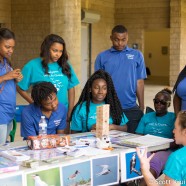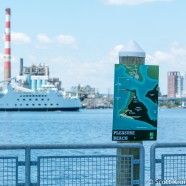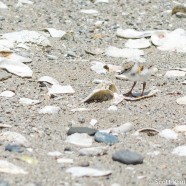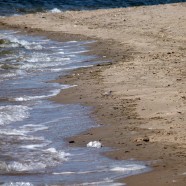WildLife Guards in Action
Have you visited Bridgeport, Connecticut’s Pleasure Beach? If you are a birder, butterfly lover, or all-around naturalist, we encourage you to stop by soon via the water taxi! Getting to Pleasure Beach is easy with free parking at the water taxi pier lot, 91 Seaview Avenue, Bridgeport. The water taxi will bring visitors to and from Pleasure Beach, and is also free. While there you can enjoy our WildLife Guards program, which trains, mentors, and employs ten local high schools students and two crew leaders to monitor nesting birds and engage visitors, families, and friends about...
Read MorePleasure Beach Training
The Roger Tory Peterson Institute of Natural History and Audubon Connecticut teamed up to instruct and ready our new WildLife Guards Crew Leaders, Alivia Sheffield and Emily Allen, from June 22 through June 26 in preparation for our WildLife Guards (WLG) program, which trains, mentors, and employs ten local high schools students. This is RTPI’s first year participating in the very successful education and outreach program. Teaching the teachers is a very important task, especially when they and their students will be reaching tens of thousands of people this summer! The students and...
Read MorePiping Plover Hatchlings & WildLife Guards
A Piping Plover pair at Bridgeport, Connecticut’s Pleasure Beach became new parents to four tiny hatchlings either very late on the night of Thursday, June 18 or early in the morning of Friday, June 19. Our work in the Audubon Alliance for Coastal Waterbirds makes them our responsibility. These birds are the City’s one pair for the 2015 season, and with Pleasure Beach being open to the public for a second year after being off limits for nearly 20 years and overrun with predators. I visited them with Audubon Connecticut’s Important Bird Area Program Coordinator Corrie...
Read MoreBeach birds and volunteer monitoring
Yesterday I was a part of beach training for the new volunteer monitors of the Audubon Alliance for Coastal Waterbirds (AAfCW). This session, to help those entering the AAfCW program with how to safely monitor and survey Piping Plovers and Least Terns, was conducted by the Connecticut Department of Energy and Environmental Protection with staff from Audubon Connecticut and myself from RTPI on hand. AAfCW and our collective staff act as a bridge to aid the State of Connecticut and U.S. Fish & Wildlife Service, regulatory agencies for these state and, in the case of the Piping Plover,...
Read More







